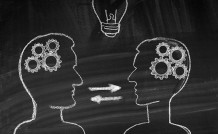Online Class: Introduction to Child Psychology

no certificate
with CEU Certificate*
-
11Lessons
-
12Exams &
Assignments -
4,755Students
have taken this course -
7Hours
average time -
0.7CEUs
Course Description
In an era where the nuances of child development are gaining increasing attention, understanding child psychology becomes paramount. This course offers a deep dive into the methodologies, theories, and pivotal concepts leveraged by experts to gain comprehensive insights into a child's universe.
The significance of child psychology extends beyond academic interest. It's foundational in discerning and establishing developmental norms, which play a pivotal role in influencing effective parenting strategies, pedagogical methods, and communication techniques.
One of the fascinating revelations of child psychology is the inherent difference in how children perceive, process, and react to situations compared to adults. Their cognitive, emotional, and reasoning faculties are in stages of growth, making their interactions with the world unique. For instance, consider a traumatic event like the loss of a pet. While an adult might process grief with a certain acceptance of life's realities, a child might manifest prolonged sadness, repeated questions about death, or even guilt, thinking they could have done something to prevent it.
The profound knowledge acquired from studying child psychology allows us to tailor our interactions to resonate with children's developmental stages, thereby fostering healthier, more constructive relationships. It aids in mitigating crises, enriching daily interactions, and positioning children for a well-rounded adulthood. Moreover, understanding child psychology is indispensable when advocating for children from challenging backgrounds or traumatic experiences.
This course, while academically rigorous, is designed to cater to a diverse audience. Whether you're a budding psychologist, a professional aiming to work with children, or someone simply intrigued by the intricacies of child development, this curriculum offers valuable insights.
Dive into Lesson 1: The Concept of Childhood, which sets the stage by delving into the historical and contemporary perspectives of childhood, juxtaposing how societal views have shifted over time.
Lesson 2: Early Biological Factors in Child Psychology offers an exploration of the genetic, hormonal, and neurological factors that influence a child's psyche from the earliest stages.
Venture into the Major Schools of Child Psychology in Lesson 3. Here, you'll trace the evolution of thought, understanding the foundational theories that have shaped our current knowledge.
Lessons 4 to 6 dissect seminal theories of cognitive and social development, from Piaget's groundbreaking insights into how children think and learn, to Vygotsky's emphasis on socio-cultural influences, and Erikson's illuminative stages of psychosocial growth.
Delving deeper, Lesson 7 centers on the mesmerizing journey of language acquisition, while Lesson 8's Nature versus Nurture debate offers a balanced view of this age-old discussion, fortified with modern research findings.
Lesson 9 emphasizes the pivotal role of family dynamics, illustrating how familial relationships mold a child's psychological framework. Moving into practical realms, Lesson 10: Applied Child Psychology showcases real-world applications of theoretical knowledge.
Concluding with Lesson 11, the course demystifies psychological testing tailored for children, emphasizing its significance in detecting developmental deviations and ensuring holistic growth.
You needn't be a seasoned scholar to engage with this course, but a curiosity about the intricate tapestry of child psychology will certainly enrich your experience. With no prerequisites, this course offers all resources, including lessons and netlinks, ensuring a seamless learning journey. Dive in, and unlock a world where you can make transformative differences in young lives.
Course Motivation
Childhood Through the Ages: From Miniature Adults to Distinct Individuals
Childhood, often seen as an innocent phase of life with minimal responsibilities, is a relatively recent societal construct. Historically, children were perceived quite differently.
During the early Middle Ages, children were treated as miniature adults. The infant stage was marked by practical care rather than deep affection. Unlike today's often intense parent-child bond, past relationships were diluted by large family sizes and an emphasis on shared responsibilities. The proverb "It takes a village to raise a child" rings true as children were largely left to fend for themselves. Upon surpassing infancy, which could extend up to six years, the expectation was for children to swiftly transition into adulthood.
Class and Childhood
Historically, children's experiences varied dramatically across classes. For example:
-
Nobility: Children were initiated early into adult roles. At age seven, they could be pledged to arranged marriages. Boys could serve as squires, possibly even witnessing battlefields firsthand.
-
Farmers and Serfs: Children were workforce assets. From a tender age, they toiled in fields, not out of neglect but necessity. Play and fantasy were luxuries, replaced by the hard truths of survival.
-
Merchants: This class perhaps enjoyed the longest "childhood". Absent from societal pressures faced by the nobility or the labor requirements of farming families, many merchant children received extended schooling. This allowed for peer interactions, play, and a paced maturation.
Industrial Shifts
The 19th century's industrialization drastically reshaped childhood. Initially, children filled labor needs in factories and mines. However, as industrial efficiency grew, child labor demand reduced. This led to an establishment of public schools to both educate and discipline the now "free" youth.
Moreover, labor reforms emerged, with legal age and hour limits set for working children. While upper classes embraced these changes, viewing them as opportunities for home education and deeper parent-child connections, the lower classes, facing economic strains, resisted.
The Evolution of Family Structure
Cultural norms influence family structures, which in turn impact child psychology. After the World Wars, the West witnessed the rise of the nuclear family – a compact unit of parents and children. By the 1950s, it was the prevalent family model, particularly in the U.S., with an unprecedented focus on childhood.
However, by the late 20th century, societal shifts — economic changes, increasing divorces, and diverse family structures — began eroding the nuclear family's dominance. Currently, no singular family structure dominates in the U.S., necessitating a broader understanding of childhood from psychologists.
As society began recognizing childhood as separate from adulthood, a surge in interest to study child psychology emerged. This has resulted in invaluable insights into the unique intellectual and emotional facets of childhood.
- Completely Online
- Self-Paced
- Printable Lessons
- Full HD Video

- 6 Months to Complete
- 24/7 Availability
- Start Anytime
- PC & Mac Compatible
- Android & iOS Friendly
- Accredited CEUs

Course Lessons
Lesson 1. The Concept of Childhood
 Lesson 1 Video
Lesson 1 Video Lesson discussions: Reasons for Taking this Course
Lesson discussions: Reasons for Taking this Course Complete: Lesson 1 Assignment
Complete: Lesson 1 Assignment Assessment: Lesson 1 Exam
Assessment: Lesson 1 Exam
Lesson 2. Early Biological Factors in Child Psychology
 Lesson 2 Video
Lesson 2 Video Assessment: Lesson 2 Exam
Assessment: Lesson 2 Exam
Lesson 3. Major Schools of Child Psychology
 Lesson 3 Video
Lesson 3 Video Assessment: Lesson 3 Exam
Assessment: Lesson 3 Exam
Lesson 4. Piaget's Theory of Cognitive Development
 Lesson 4 Video
Lesson 4 Video Assessment: Lesson 4 Exam
Assessment: Lesson 4 Exam
Lesson 5. Vygotsky's Theory of Social Cognitive Development
 Lesson 5 Video
Lesson 5 Video Assessment: Lesson 5 Exam
Assessment: Lesson 5 Exam
Lesson 6. Erikson's Eight Stages of Development
 Lesson 6 Video
Lesson 6 Video Lesson discussions: Child Development Theories
Lesson discussions: Child Development Theories Assessment: Lesson 6 Exam
Assessment: Lesson 6 Exam
Lesson 7. Development of Language
 Lesson 7 Video
Lesson 7 Video Lesson discussions: First Words
Lesson discussions: First Words Assessment: Lesson 7 Exam
Assessment: Lesson 7 Exam
Lesson 8. Nature versus Nurture
 Lesson 8 Video
Lesson 8 Video Lesson discussions: Nature or Nurture
Lesson discussions: Nature or Nurture Assessment: Lesson 8 Exam
Assessment: Lesson 8 Exam
Lesson 9. Family Dynamics and Child Psychology
 Lesson 9 Video
Lesson 9 Video Assessment: Lesson 9 Exam
Assessment: Lesson 9 Exam
Lesson 10. Applied Child Psychology
 Lesson 10 Video
Lesson 10 Video Assessment: Lesson 10 Exam
Assessment: Lesson 10 Exam
Lesson 11. Psychological Testing and Children
 Lesson 11 Video
Lesson 11 Video Lesson discussions: How would you rate this course?; Program Evaluation Follow-up Survey (End of Course); Course Comments
Lesson discussions: How would you rate this course?; Program Evaluation Follow-up Survey (End of Course); Course Comments Assessment: Lesson 11 Exam
Assessment: Lesson 11 Exam
Learning Outcomes
- Define what child psychology is.
- Recognize early biological factors in child psychology.
- Describe the major schools of child psychology.
- Summarize Piaget's Theory of Cognitive Development.
- Summarize Vygotsky's Theory of Sociocognitive Development.
- Define Erikson's Eight Stages of Development.
- Describe the processes of the development of language.
- Define nurture.
- Summarize the affect of family dynamics on child psychology.
- Demonstrate mastery of lesson content at levels of 70% or higher.
Additional Course Information

- Document Your Lifelong Learning Achievements
- Earn an Official Certificate Documenting Course Hours and CEUs
- Verify Your Certificate with a Unique Serial Number Online
- View and Share Your Certificate Online or Download/Print as PDF
- Display Your Certificate on Your Resume and Promote Your Achievements Using Social Media

Choose Your Subscription Plan
No Certificate / No CEUs
This course only
| Includes certificate | X |
| Includes CEUs | X |
| Self-paced |

|
| Instructor support |

|
| Time to complete | 6 months |
| No. of courses | 1 course |
Certificate & CEUs
This course only
| Includes certificate |

|
| Includes CEUs |

|
| Self-paced |

|
| Instructor support |

|
| Time to complete | 6 months |
| No. of courses | 1 course |
Certificates & CEUs
Includes all 600+ courses
| Includes certificate |

|
| Includes CEUs |

|
| Self-paced |

|
| Instructor support |

|
| Time to complete | 12 Months |
| No. of courses | 600+ |
Certificates & CEUs
Includes all 600+ courses
| Includes certificate |

|
| Includes CEUs |

|
| Self-paced |

|
| Instructor support |

|
| Time to complete | 24 Months |
| No. of courses | 600+ |
Student Testimonials
- "He was very informative, full of good advice." -- Joyce S.
- "I loved the course, and instructor is well organized, expert, and helpful. Thank you" -- Golam G.
- "I believe that each chapter offered a great deal of information, and excellent links to get more material on the that chapter." -- Golam G.
Related Courses
-
 29 hours
2.9 CEUs
Human Resources Productivity Course Bundle
+ More Info
29 hours
2.9 CEUs
Human Resources Productivity Course Bundle
+ More Info
-
 21 hours
2.1 CEUs
Ultimate Parenting Course Bundle
+ More Info
21 hours
2.1 CEUs
Ultimate Parenting Course Bundle
+ More Info
-
 5 hours
0.5 CEUs
Kaizen 101 - An Introduction
+ More Info
5 hours
0.5 CEUs
Kaizen 101 - An Introduction
+ More Info
-
 7 hours
0.7 CEUs
How to Read Body Language
+ More Info
7 hours
0.7 CEUs
How to Read Body Language
+ More Info
-
 5 hours
0.5 CEUs
Depression Management
+ More Info
5 hours
0.5 CEUs
Depression Management
+ More Info
-
 7 hours
0.7 CEUs
Understanding Learning Styles
+ More Info
7 hours
0.7 CEUs
Understanding Learning Styles
+ More Info
-
 8 hours
0.8 CEUs
Procurement Management
+ More Info
8 hours
0.8 CEUs
Procurement Management
+ More Info
-
 3 hours
0.3 CEUs
First Grade Curriculum
+ More Info
3 hours
0.3 CEUs
First Grade Curriculum
+ More Info
-
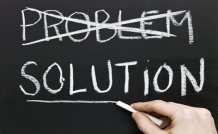 3 hours
0.3 CEUs
Problem Solving Strategies
+ More Info
3 hours
0.3 CEUs
Problem Solving Strategies
+ More Info
-
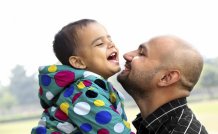 5 hours
0.5 CEUs
Positive Parenting Techniques
+ More Info
5 hours
0.5 CEUs
Positive Parenting Techniques
+ More Info
-
 6 hours
0.6 CEUs
Confidence Building
+ More Info
6 hours
0.6 CEUs
Confidence Building
+ More Info
-
 5 hours
0.5 CEUs
Team Building 101
+ More Info
5 hours
0.5 CEUs
Team Building 101
+ More Info
-
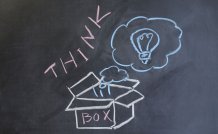 7 hours
0.7 CEUs
Innovative Thinking Skills
+ More Info
7 hours
0.7 CEUs
Innovative Thinking Skills
+ More Info
-
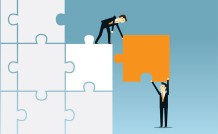 6 hours
0.6 CEUs
Goal Setting for Business
+ More Info
6 hours
0.6 CEUs
Goal Setting for Business
+ More Info
-
 5 hours
0.5 CEUs
Critical Thinking Skills
+ More Info
5 hours
0.5 CEUs
Critical Thinking Skills
+ More Info
-
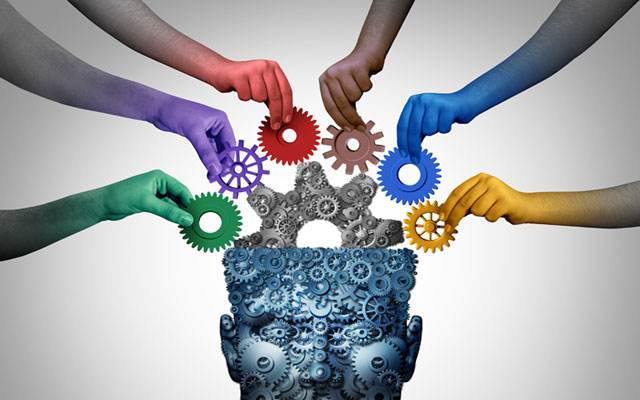 6 hours
0.6 CEUs
Introduction to Organizational Psychology
+ More Info
6 hours
0.6 CEUs
Introduction to Organizational Psychology
+ More Info
-
 5 hours
0.5 CEUs
Creative Thinking Skills
+ More Info
5 hours
0.5 CEUs
Creative Thinking Skills
+ More Info
-
 9 hours
0.9 CEUs
Relaxation 101
+ More Info
9 hours
0.9 CEUs
Relaxation 101
+ More Info
-
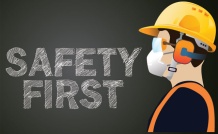 5 hours
0.5 CEUs
Workplace Safety
+ More Info
5 hours
0.5 CEUs
Workplace Safety
+ More Info
-
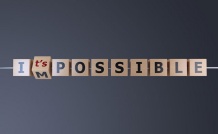 6 hours
0.6 CEUs
Leadership and Supervision 101
+ More Info
6 hours
0.6 CEUs
Leadership and Supervision 101
+ More Info
-
 4 hours
0.4 CEUs
Second Grade Curriculum
+ More Info
4 hours
0.4 CEUs
Second Grade Curriculum
+ More Info
-
 7 hours
0.7 CEUs
Leadership Skills for Managers
+ More Info
7 hours
0.7 CEUs
Leadership Skills for Managers
+ More Info
-
 6 hours
0.6 CEUs
Management Essentials
+ More Info
6 hours
0.6 CEUs
Management Essentials
+ More Info
-
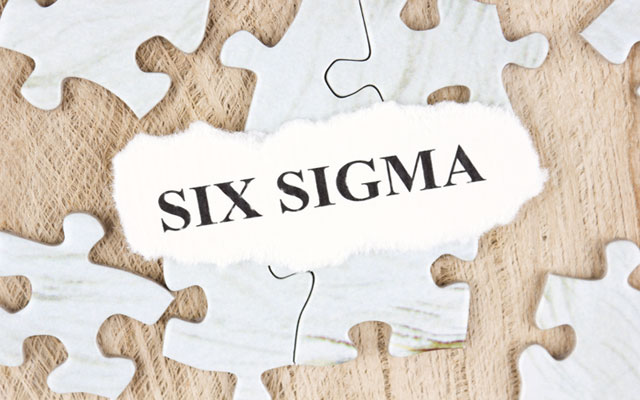 9 hours
0.9 CEUs
Introduction to Six Sigma
+ More Info
9 hours
0.9 CEUs
Introduction to Six Sigma
+ More Info
-
 9 hours
0.9 CEUs
Watercolor Painting 101
+ More Info
9 hours
0.9 CEUs
Watercolor Painting 101
+ More Info
-
 7 hours
0.7 CEUs
Interpersonal Communication
+ More Info
7 hours
0.7 CEUs
Interpersonal Communication
+ More Info
-
 4 hours
0.4 CEUs
How To Be a Substitute Teacher
+ More Info
4 hours
0.4 CEUs
How To Be a Substitute Teacher
+ More Info
-
 4 hours
0.4 CEUs
Stress Management
+ More Info
4 hours
0.4 CEUs
Stress Management
+ More Info
-
 7 hours
0.7 CEUs
Solving Classroom Discipline Problems
+ More Info
7 hours
0.7 CEUs
Solving Classroom Discipline Problems
+ More Info
-
 14 hours
1.4 CEUs
Acrylic Painting 101
+ More Info
14 hours
1.4 CEUs
Acrylic Painting 101
+ More Info
-
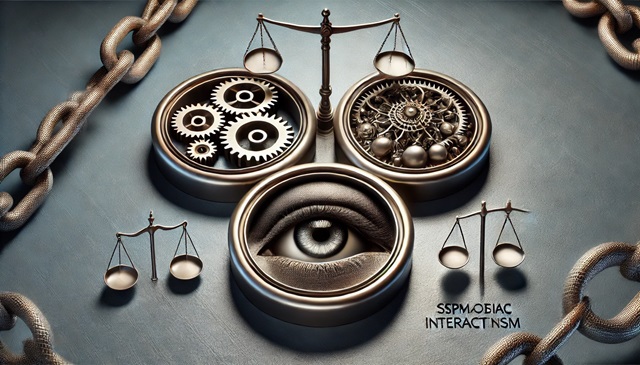 15 hours
1.5 CEUs
Sociology 101
+ More Info
15 hours
1.5 CEUs
Sociology 101
+ More Info
-
 9 hours
0.9 CEUs
Business Management
+ More Info
9 hours
0.9 CEUs
Business Management
+ More Info
-
 8 hours
0.8 CEUs
Decision Making Skills
+ More Info
8 hours
0.8 CEUs
Decision Making Skills
+ More Info
-
 6 hours
0.6 CEUs
Introduction to Abnormal Psychology
+ More Info
6 hours
0.6 CEUs
Introduction to Abnormal Psychology
+ More Info
-
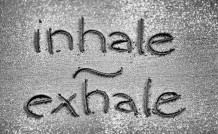 5 hours
0.5 CEUs
The Art of Breathing
+ More Info
5 hours
0.5 CEUs
The Art of Breathing
+ More Info
-
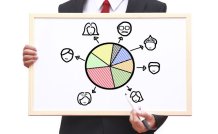 6 hours
0.6 CEUs
Delegation Skills
+ More Info
6 hours
0.6 CEUs
Delegation Skills
+ More Info
-
 7 hours
0.7 CEUs
Management Consultant 101
+ More Info
7 hours
0.7 CEUs
Management Consultant 101
+ More Info
-
 5 hours
0.5 CEUs
Home Safety
+ More Info
5 hours
0.5 CEUs
Home Safety
+ More Info


